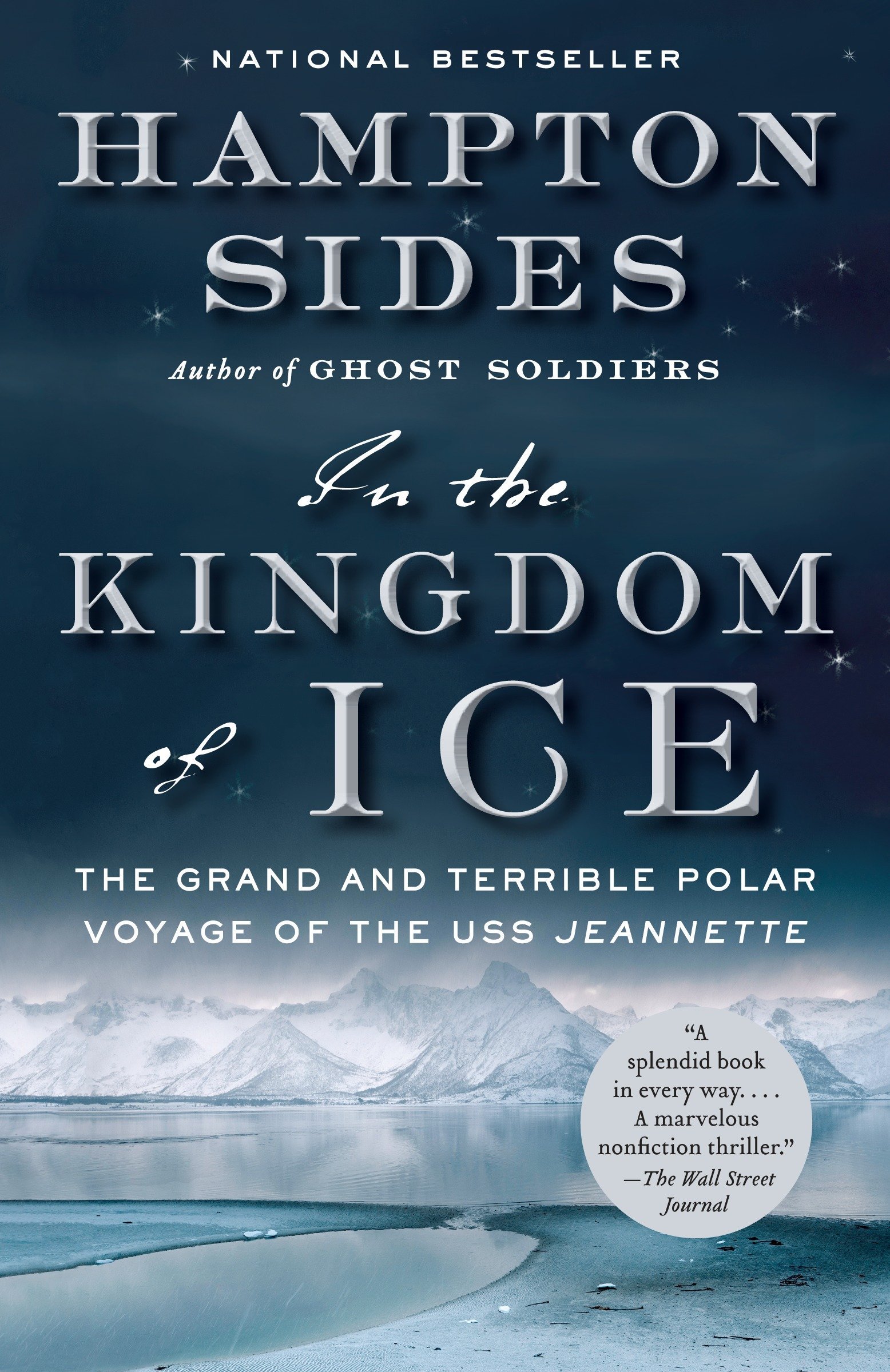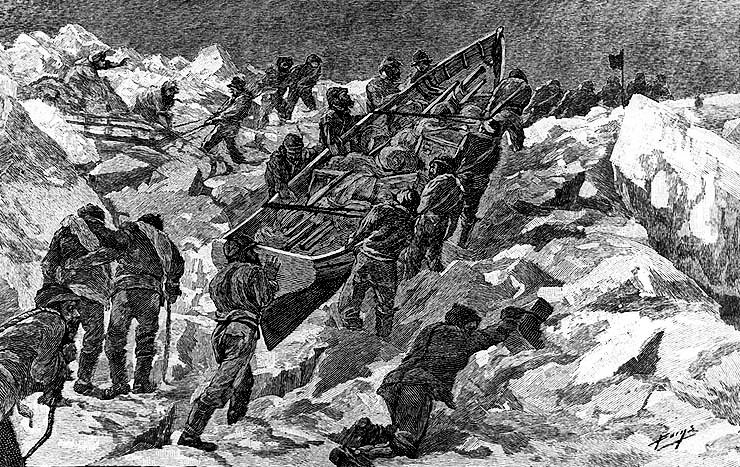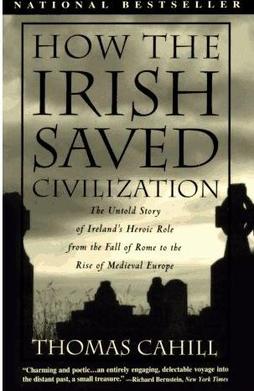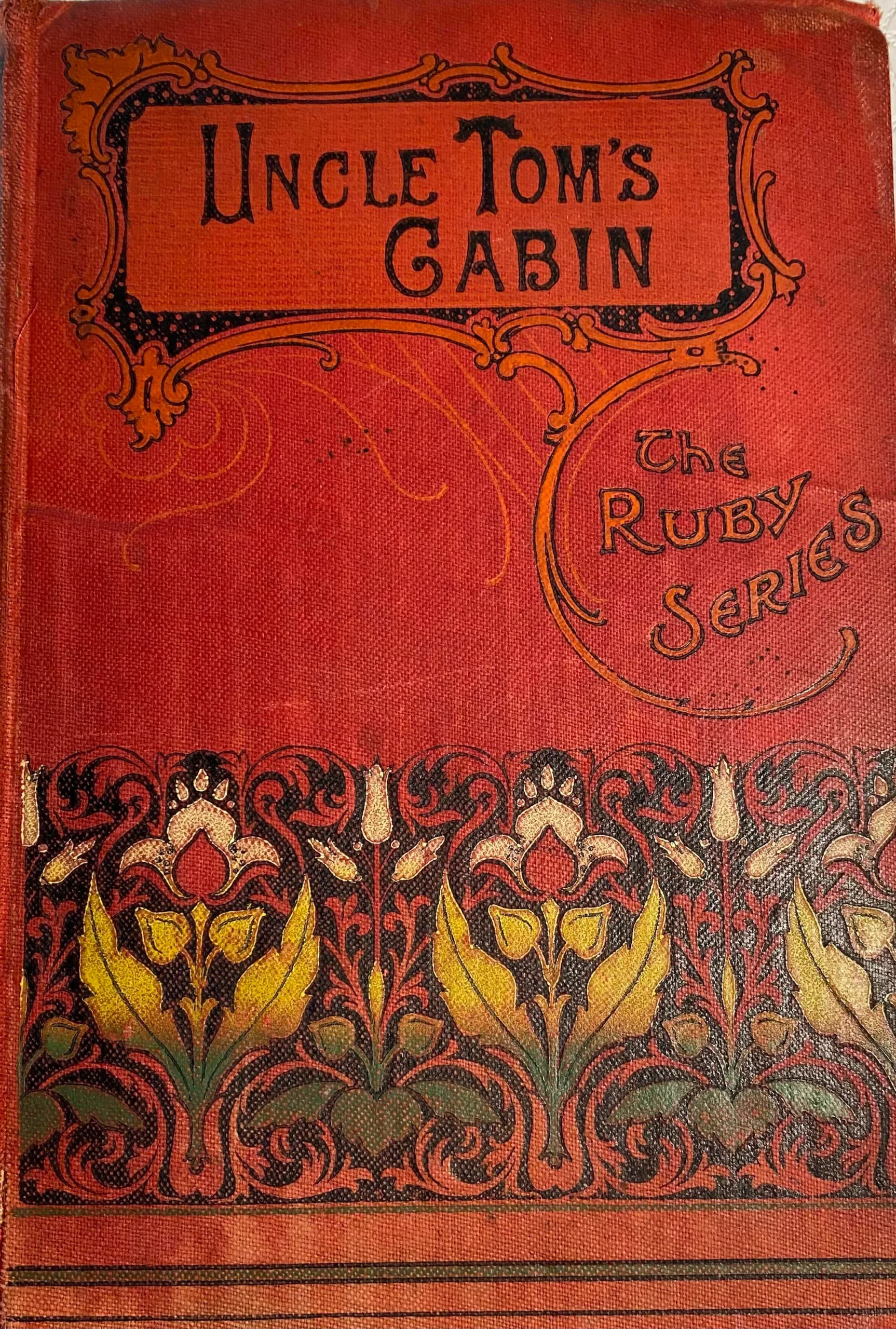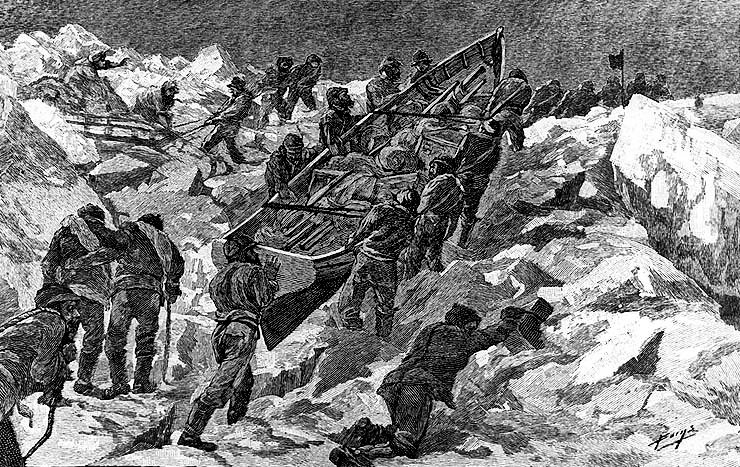
I loved Hampton Sides’s book In the Kingdom of Ice. It’s packed with adventure, tragedy, struggle, and perseverance. This masterpiece comes with a full cast of bizarre, fascinating, and heroic characters and Sides manages to awaken our imaginations with these personalities while at the same time giving us a captivating snapshot of what life was like in the late 1800s. I recounted the story to my children bit by bit each night after supper. They were so enamoured by the tale that they demanded I keep reading the book without interruption so that I would not fail to tell them the latest news of the Delong voyage to the North Pole each night.
Captain George DeLong, like so many from 150 years ago, had a reasonably robust faith in God. One comment that he made, just days before he and his compatriots froze to death in the Siberian snow, struck me and hasn’t left. I puzzle over the comment, given just how non-providential his ill-fated voyage seemed.
DeLong’s doomed voyage was built upon the faulty premise that there was an open polar sea ringed by ice. The ring of ice was softened by a warm water current that pushed north. This current was the key to breaking the ice barrier and sailing safely to the north pole. Six weeks after DeLong left port on his expedition, this theory was proven false, but it was too late to get word to him. The ship became trapped in ice, and the crew was forced to endure hardships both great and small for nearly two years until finally, the ship was crushed and sunk. The team was forced to set off across the polar ice pack, dragging three lifeboats and several tonnes of supplies with them. The work was back-breaking, and mind dismantling. Finally, after traversing hundreds of miles (thousands if you count all the backtracking), they made it to the open sea. They had only one hundred miles to go in the boats before they made landfall in Siberia. Sadly one of the three vessels sunk in a storm that unfortunately blew up just as they were crossing, all on board perished. Delong’s boat made it but got stuck 2 miles from shore on a mudflat. They had to abandon ship and wade in the frozen water to shore. The maps they had were incorrect, so instead of finding a village and salvation, they found a tangled flood plain full of half-frozen marshes and near impassable entrenchments. They gradually ran out of food, and their bodies gave way to frostbite as they struggled inland. Local people followed them at a distance but refused to help because they were thought to be pirates or criminals. Throughout their struggle, they would occasionally find game to shoot or a small abandoned hut for shelter.
On one such occasion, DeLong penned these words in his journal.
I need hardly to say how great the relief was to my overstretched mind. If ever, divine Providence was manifested on behalf of needy and exposed people, we are an instance of it.
DeLong had come to see the good hand of God behind these timely encounters with game and shelter. He and his crew had dangled precariously on the edge of extinction for so long, that every little extension of their life, miserable though it was, was considered a gift from God. As I look at the whole story, it’s hard for me to see the good hand of divine Providence at work. The entire voyage was cursed from the very beginning. George knew this, but yet he still thought it best to see any positive that came along in such an overwhelmingly negative story as a good gift from God.
Was DeLong just an idiot for believing this, or did this perspective allow him to thrive amid such extreme adversity? Judging from his journals, one can see that his faith in God’s good providence kept him from complete despair all the way till the end. Which cannot be said for Collins, Delong’s subordinate and adversary who had little time for musings about divine providence. He died near DeLong fists clenched and bitter blame angrilly scrolled across the pages of his frozen journals. The contrast is startling.
